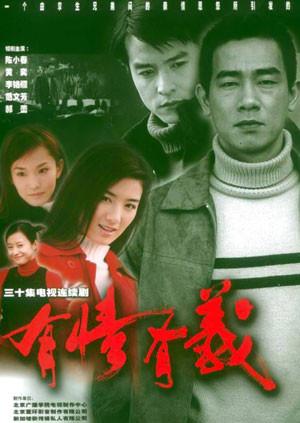由瓦尔丹·托兹加编剧执导,琴女主要讲述年轻人在犯罪道路上的经历。在一个由权力决定公平的国度,琴女主人公菲利浦生活在青少年收养中心,在一个腐败警察的胁迫下,他被迫参与了一次可怕的案件,因而产生无法痊愈的心理创伤。尽管菲利浦拥有其老师的帮助、收养中心的照料、朋友佩塔尔的安慰,他最终还是未能战胜那次案件后的心理创伤带给他的痛苦。痛苦吞噬了他的理智,产生复仇之念,致使他将更多年轻人拉入他残酷命运的深渊。最终菲利浦通过其暴力、凶猛的手段,将迷失的年轻人带进了黑暗、暴力的犯罪世界。

由瓦尔丹·托兹加编剧执导,琴女主要讲述年轻人在犯罪道路上的经历。在一个由权力决定公平的国度,琴女主人公菲利浦生活在青少年收养中心,在一个腐败警察的胁迫下,他被迫参与了一次可怕的案件,因而产生无法痊愈的心理创伤。尽管菲利浦拥有其老师的帮助、收养中心的照料、朋友佩塔尔的安慰,他最终还是未能战胜那次案件后的心理创伤带给他的痛苦。痛苦吞噬了他的理智,产生复仇之念,致使他将更多年轻人拉入他残酷命运的深渊。最终菲利浦通过其暴力、凶猛的手段,将迷失的年轻人带进了黑暗、暴力的犯罪世界。

回复 :Somewhere in the remote region, the war ends. In the midst of ruined cities and houses in the streets, in rural hamlets, everywhere where people still live, are children who have lost their homes and parents. Abandoned, hungry, and in rags, defenseless and humiliated, they wander through the world. Hunger drives them. Little streams of orphans merge into a river which rushes forward and submerges everything in its path. The children do not know any feeling; they know only the world of their enemies. They fight, steal, struggle for a mouthful of food, and violence is merely a means to get it. A gang led by Cahoun finds a refuge in an abandoned castle and encounters an old composer who has voluntarily retired into solitude from a world of hatred, treason, and crime. How can they find a common ground, how can they become mutual friends? The castle becomes their hiding place but possibly it will also be their first home which they may organize and must defend. But even for this, the price will be very high.To this simple story, the journalist, writer, poet, scriptwriter, movie director, and film theoretician Béla Balázs applied many years of experience. He and the director Géza Radványi created a work which opened a new postwar chapter in Hungarian film. Surprisingly, this film has not lost any of its impact over the years, especially on a profound philosophical level. That is to say, it is not merely a movie about war; it is not important in what location and in what period of time it takes place. It is a story outside of time about the joyless fate of children who pay dearly for the cruel war games of adults.At the time it was premiered, the movie was enthusiastically received by the critics. The main roles were taken by streetwise boys of a children's group who created their roles improvisationally in close contact with a few professional actors, and in the children's acting their own fresh experience of war's turmoil appears to be reflected. At the same time, their performance fits admirably into the mosaic of a very complex movie language. Balázs's influence revealed itself, above all, in the introductory sequences: an air raid on an amusement park, seen in a montage of dramatic situations evoking the last spasms of war, where, undoubtedly, we discern the influence of classical Soviet cinematography. Shooting, the boy's escape, the locomotive's wheels, the shadows of soldiers with submachine guns, the sound of a whistle—the images are linked together in abrupt sequences in which varying shots and expressive sharp sounds are emphasized. A perfectly planned screenplay avoided all elements of sentimentality, time-worn stereotypes of wronged children, romanticism and cheap simplification. The authors succeeded in bridging the perilous dramatic abyss of the metamorphosis of a children's community. Their telling of the story (the scene of pillaging, the assault on the castle, etc) independently introduced some neorealist elements which, at that time, were being propagated in Italy by De Sica, Rossellini, and other film artists. The rebukes of contemporary critics, who called attention to "formalism for its own sake" have been forgotten. The masterly art of cameraman Barnabás Hegyi gives vitality to the poetic images. His angle shots of the children, his composition of scenes in the castle interior, are a living document of the times, and underline the atmosphere and the characters of the protagonists. The success of the picture was also enhanced by the musical art of composer Dénes Buday who, in tense situations, inserted the theme of the Marseilaise into the movie's structure, as a motive of community unification, as an expression of friendship and the possibility of understanding.Valahol Europaban is the first significant postwar Hungarian film. It originated in a relaxed atmosphere, replete with joy and euphoria, and it includes these elements in order to demonstrate the strength of humanism, tolerance, and friendship. It represents a general condemnation of war anywhere in the world, in any form.
回复 :该片改编自Michael Zadoorian的同名小说,讲述了一对患重病的老夫妻开着老旧的房车从马塞诸塞州出发前往海明威的故居,在旅途中回顾人生的故事。约翰是一位文学教师和作家,海明威的死忠,尽管阿兹海默症已经让他的记忆越来越差,甚至会忘记妻子和儿女的名字,却依旧可以随口说出海明威的所有作品,《老人和海》更是他的钟爱。因为妻子艾拉患重病需要住院, 约翰就只能进入养老院,携手走过一辈子的二人面临永远分开的未来。于是,他们有了一个疯狂的决定,决心驾驶名叫“leisure seeker 求闲者”的房车,从马塞诸塞州一路南行,回顾70年代曾和孩子们一起度假的旅程,目的地是西锁岛key west 的海明威故居。
回复 :狗娃死水一般平静枯燥的生活在某天他给牛喂草时被突然铲出的一个哑女给打破了。 哑女的一举一动充满了诡异,在二丫的眼里哑女就是神仙姐姐,狗娃哭笑不得。 狗娃犯难了!他要在从小一直喜欢他的二凤和哑女之间作出选择,周公安开始介入调查却一直无果,通过医生狗娃知道了哑女的秘密,狗娃没有退缩,他相信爱能融化一切。 山上如画般的湖边,狗娃的爱心终于有了回报:哑女开口了!然而,她开口的第一句话却是我杀人了……


